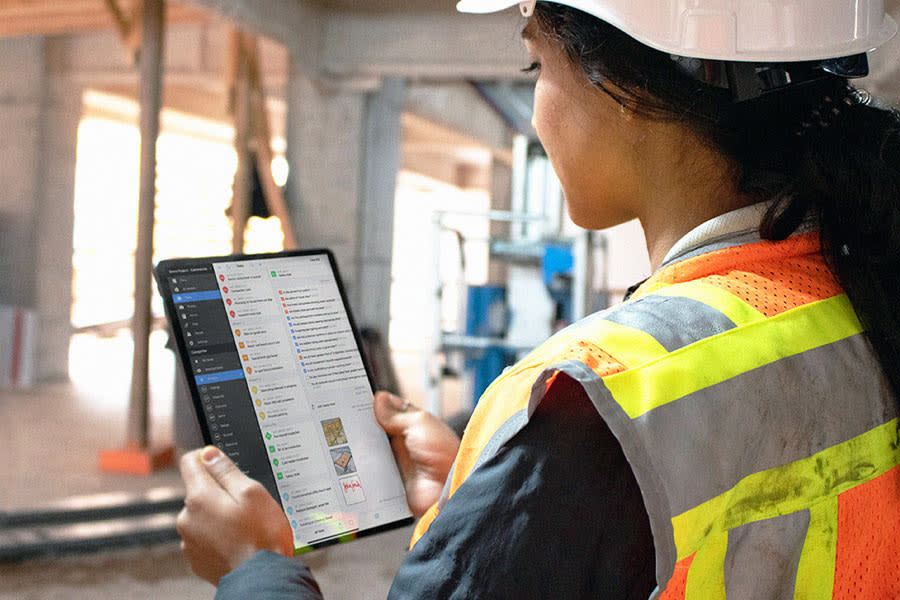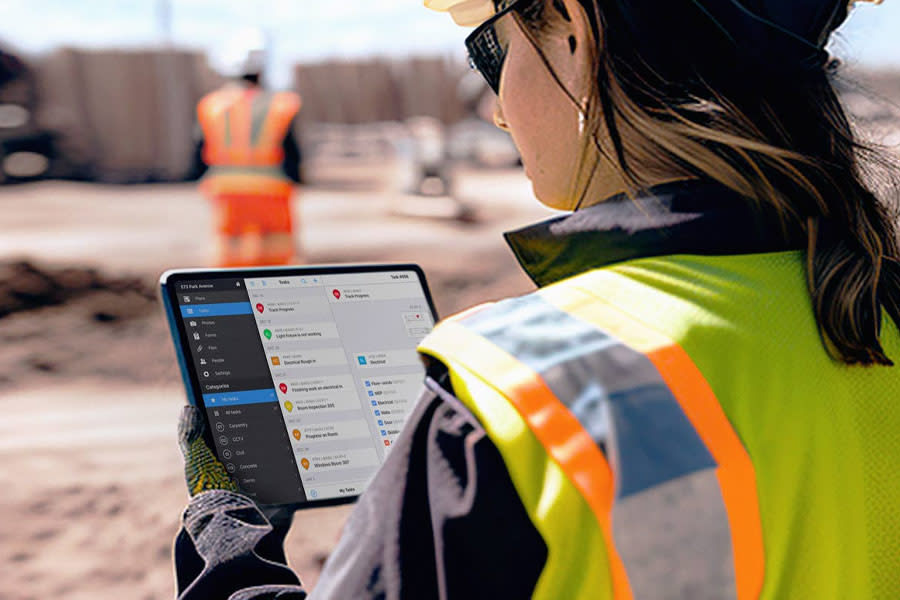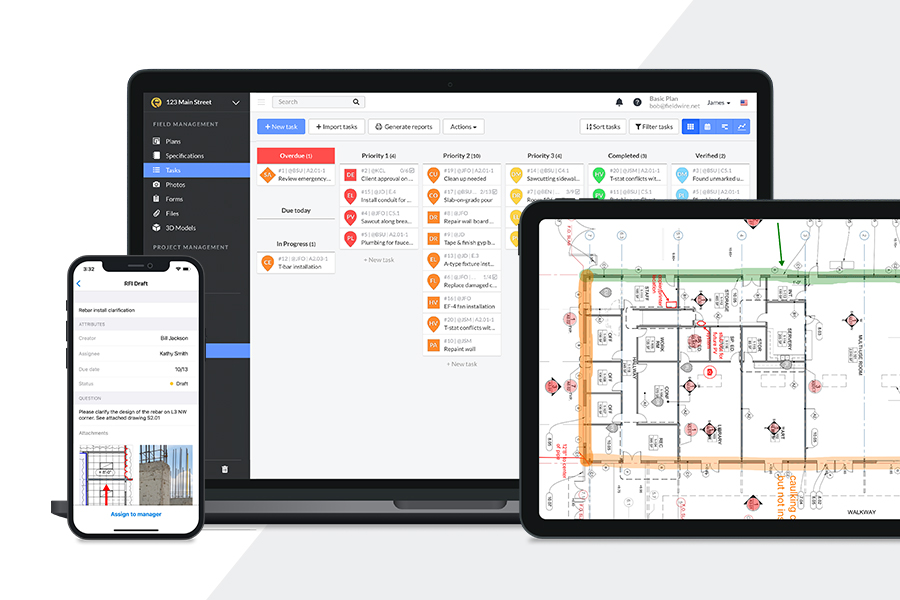Top 5 challenges for construction project managers
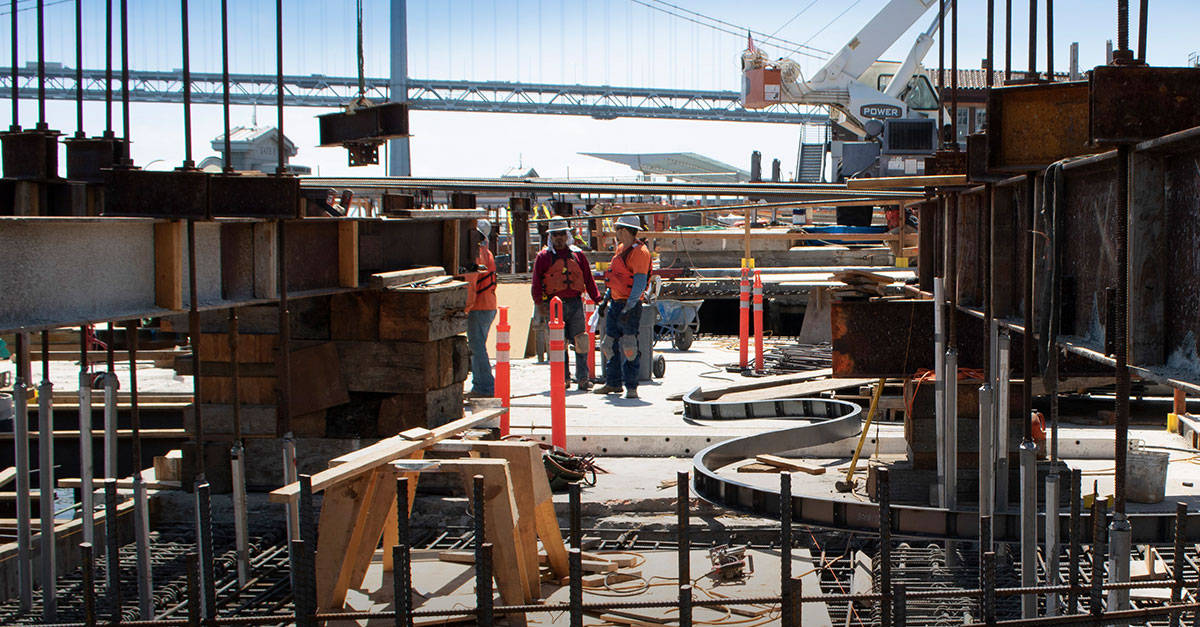
Each construction project poses unique challenges — this is why construction project managers have distinct roles and responsibilities to fulfill from project to project. These challenges require both a strategic understanding of the business of construction and tactical expertise on the issues that come with each project phase.
The project management issues that managers face come from the unique structure of construction projects. All stakeholders in a construction project including the property owner, lenders, suppliers, and subcontractors all have different views and interests that could come at odds along the way. There are also challenges that come from outside of the project such as government regulations and weather issues.
The on-schedule delivery of a construction project depends on effective project management. A construction project manager needs to be ready to face difficulties — both expected and unforeseen — to ensure that the project is completed.
Here are some of the common challenges construction project managers can expect to face in a typical construction project.
1. Poorly defined objectives
Many project managers struggle with a lack of well-defined goals for the projects they run. When goals and objectives are not clearly defined, project managers and stakeholders will not be on the same page regarding the direction of the project. It’s like going on a road trip with no destination in mind — you end up wasting time and fuel, ending up in the middle of nowhere.
Sure, project completion is always the general goal. However, each project is likely to have non-standard objectives that must be spelled out, whether it be timeline-related or pertaining to the final delivery of the project. These goals will be the basis of the decision-making structure and task delegation throughout the project.
To prevent this from happening, project managers should be proactive in asking the right questions from the client or contractor, and make sure they agree upon the goals right from the outset.
2. Budget constraints
Going over-budget is common in the construction sector. It is the job of the construction project manager to set a reasonable expectation for cost overruns and make adjustments to mitigate and manage them. Poor judgment, lack of proper oversight, or a simple miscalculation can result in the collapse of the project.
Ultimately, the project budget is defined by stakeholder expectations and the requirements of the project. So the first step in managing the project budget is to ensure project deliverables are accurately identified. Realistic cost estimates are important in planning for contingencies. The budget should factor in things that are outside a project manager’s control, such as environmental considerations, resource and labor shortages, currency exchange, and so on.
Finally, the project’s budget needs to be reviewed constantly to stay on track. As unplanned work and change orders creep into your project scope, the cost can easily go out of control if it is not managed closely.
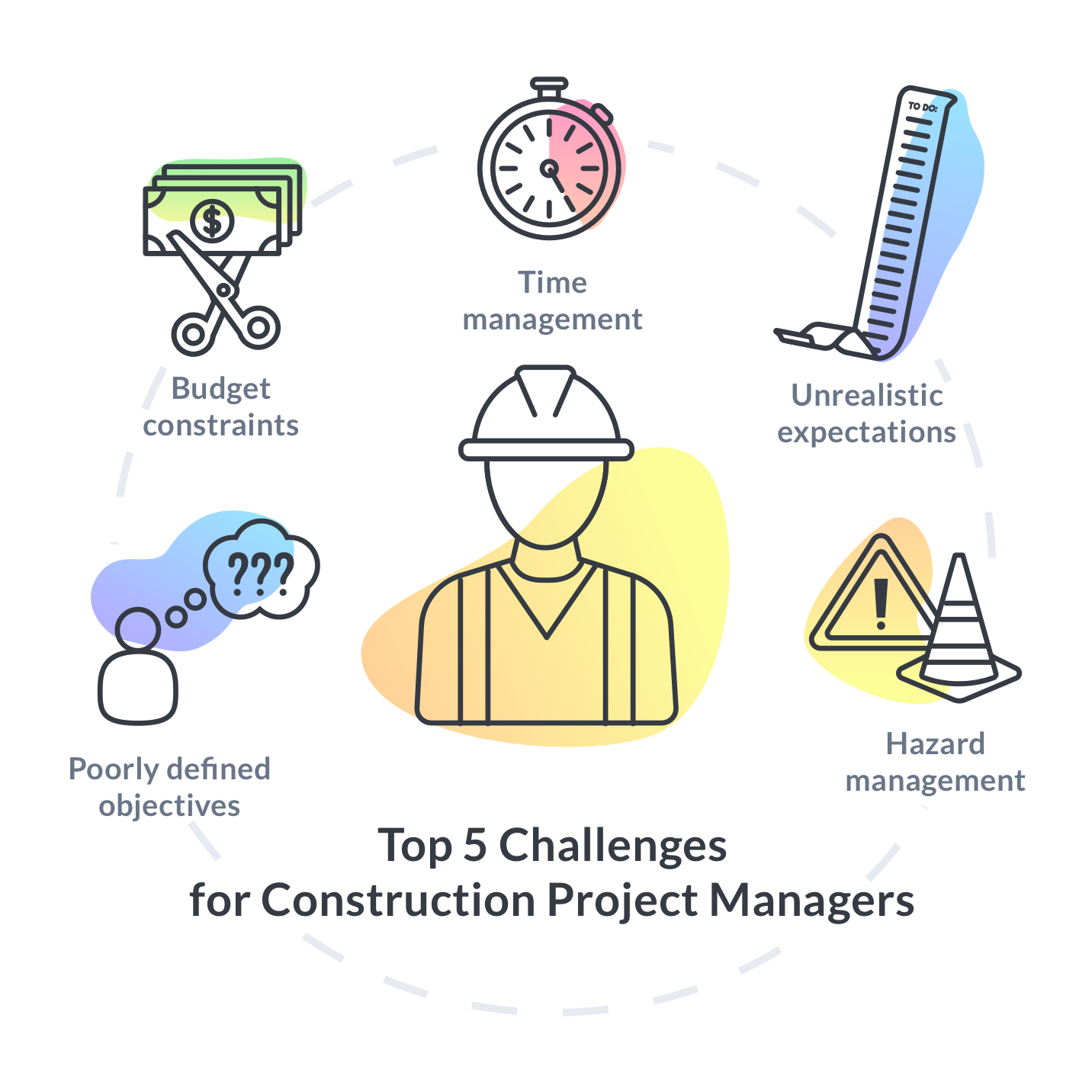
3. Time management
A lot of stakeholders perceive time constraints as among the biggest issues that result in defective designs, high rates of accidents, and loss in revenue. Scheduling conflicts and missed deadlines can lead to contractors inadvertently cutting corners in order to catch up. This can further snowball into more delays and higher costs as they try to find and fix defects or risk contractual penalties.
Many project managers also sometimes face struggles ensuring consistent communication with the finance and sales departments due to scheduling. Case in point, ensuring appropriate lien notices are filed on time requires tight correspondence between these departments, and delays can result in lost revenue for the business.
For these reasons, construction project managers need to focus on tackling different variables that cause delays and designing workflows that ensure requirements are always met. Time management involves tracking subcontractors and suppliers to factor paperwork, labor, and lead times. Weather changes and other unforeseeable circumstances should also be taken into consideration. All of these time management issues can be managed with project scheduling and tracking methods.
4. Unrealistic expectations
Impossible deadlines and unreasonable requests are some of the biggest morale and productivity killers in a project. Sometimes, the client, the consultants, and the board have unrealistic expectations of a project and want to put their ideas into action immediately. This stems from the competitiveness of the industry, driving stakeholders to set unachievable rather than logical business requirements.
This is where a project manager’s soft skills come into play. In the same way that project managers work with their subordinates, they should also be able to manage their superiors. Project managers are there to advocate for the team and respond to unrealistic expectations. By communicating the team’s feedback, they will be able to put the clients and the project back on track.
5. Hazard management
The construction industry involves greater and more costly risks compared to other industries. Workers face real dangers on-site including bodily injuries and even loss of life. For this reason, risk management is a top priority for project managers. They should be proactive in identifying safety issues and strive to achieve a construction project that finishes without any untoward incident.
One of the best ways to mitigate the dangers in the field is by involving workers in the safety process. A project manager should be able to encourage them to report potential hazards in the construction site as well as any accidents that happened. Project managers should also have site-specific safety management plans. Not all construction projects are the same so it is important to tailor your plans based on the specific needs of the project.
These are just some of the challenges project managers can face throughout the duration of a construction project. Depending on the nature of the issue, project managers need to be proactive in looking for solutions to these issues before they impact the success of the project.

 Patrick Hogan •
Patrick Hogan • 